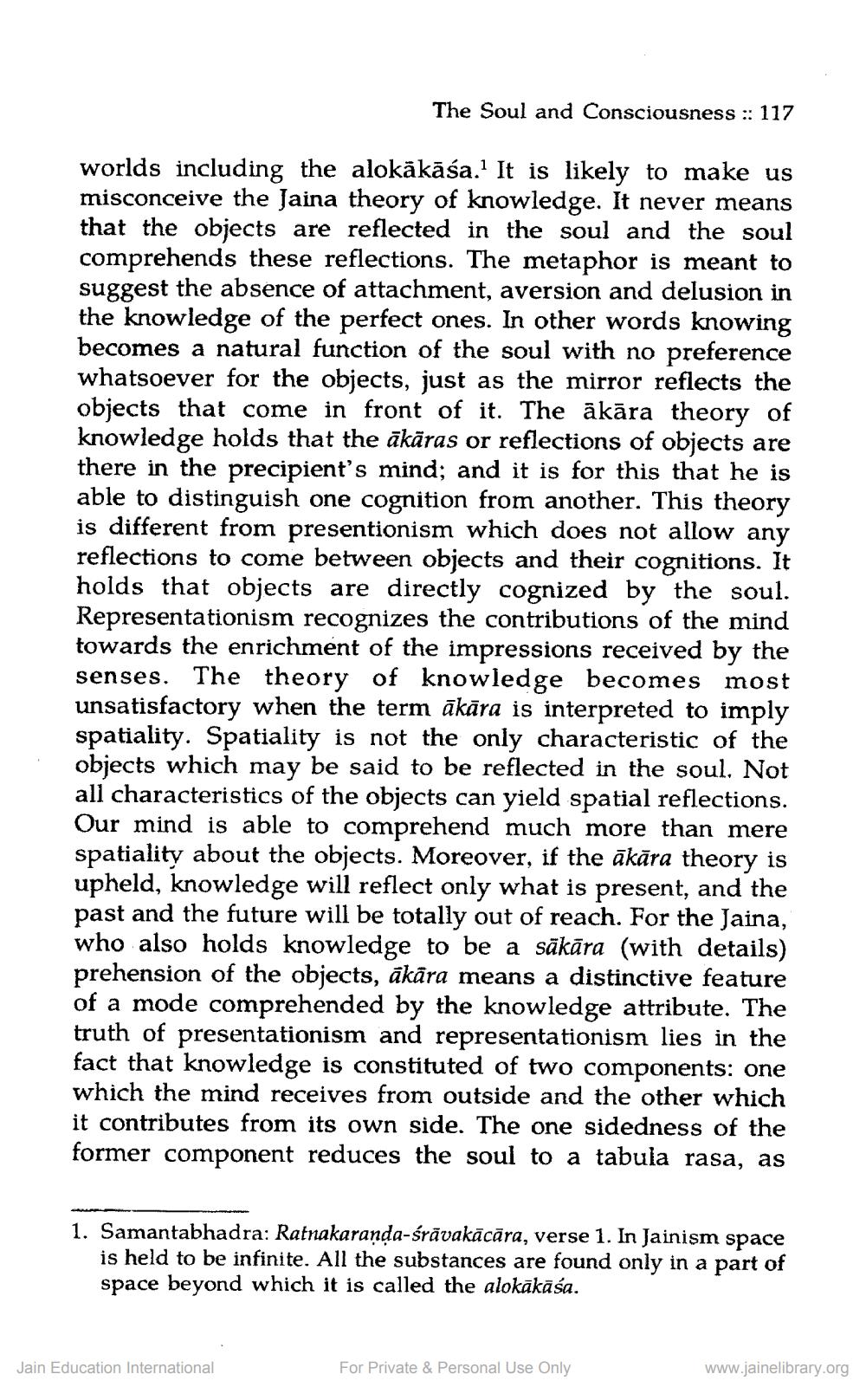________________
The Soul and Consciousness :: 117
worlds including the alokākāśa. It is likely to make us misconceive the Jaina theory of knowledge. It never means that the objects are reflected in the soul and the soul comprehends these reflections. The metaphor is meant to suggest the absence of attachment, aversion and delusion in the knowledge of the perfect ones. In other words knowing becomes a natural function of the soul with no preference whatsoever for the objects, just as the mirror reflects the objects that come in front of it. The ākāra theory of knowledge holds that the ākāras or reflections of objects are there in the precipient's mind; and it is for this that he is able to distinguish one cognition from another. This theory is different from presentionism which does not allow any reflections to come between objects and their cognitions. It holds that objects are directly cognized by the soul. Representationism recognizes the contributions of the mind towards the enrichment of the impressions received by the senses. The theory of knowledge becomes most unsatisfactory when the term ākāra is interpreted to imply spatiality. Spatiality is not the only characteristic of the objects which may be said to be reflected in the soul. Not all characteristics of the objects can yield spatial reflections. Our mind is able to comprehend much more than mere spatiality about the objects. Moreover, if the ākāra theory is upheld, knowledge will reflect only what is present, and the past and the future will be totally out of reach. For the Jaina, who also holds knowledge to be a sākāra (with details) prehension of the objects, ākāra means a distinctive feature of a mode comprehended by the knowledge attribute. The truth of presentationism and representationism lies in the fact that knowledge is constituted of two components: one which the mind receives from outside and the other which it contributes from its own side. The one sidedness of the former component reduces the soul to a tabula rasa, as
1. Samantabhadra: Ratnakaranda-śrāvakācāra, verse 1. In Jainism space
is held to be infinite. All the substances are found only in a part of space beyond which it is called the alokākāśa.
Jain Education International
For Private & Personal Use Only
www.jainelibrary.org




